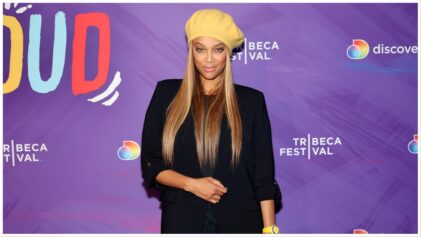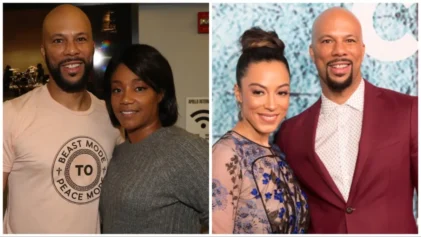Angela Rye knows she’s a woman of a certain age and so she made the decision to freeze her eggs — something that wasn’t the most comfortable thing for a woman who’s afraid of needles.
“I’m 38, I’m old, just don’t let the silky hair fool you,” she tells the co-hosts on ‘The Real’ Wednesday, Jan. 31. “So, 38, it was just time. It was a process I looked into when I was 35 and I got scared because my egg reserve number was low. And so they were telling me that I’d have to go through multiple cycles, which was expensive and I just got scared. And so now I’m like, ‘Uhhh… what do I have to lose?’ So I really wanted to go and do that.”
The CNN commentator understands how rough the process can be and so she’s recorded footage in hopes of sharing it with women who are going through the same thing.
“I’m hoping that I’ll use it to inspire women because it was scary – I hate needles, so I had somebody come do the shots every day. … I was like, ‘Somebody’s going to have to come do this for me!’ But it was a really emotional experience, I didn’t cry a lot, but I felt so connected with my body, trying to create an environment where there weren’t going to be stressed out eggs. Somebody that’s like a big sister to me was like, ‘Don’t have stressed out eggs!’”
Still, with all that preparation, Rye isn’t 100 percent sure motherhood is in the cards for her.
“As I get older, I’m a little more nervous about that!” she says. “I have six godkids. But I definitely want the option, I don’t want to foreclose on an option.”
And while Black celebrity women like Rye and Tyra Banks make it seem as though egg freezing is normal in the community, Atlanta-based obstetrician-gynecologist and fertility specialist Dr. Desireé McCarthy-Keith said Black women are typically left out of such conversations.
“Historically, fertility treatments have been mostly targeted to and used by white women, middle-class women,” she told The New York Times. “So the initial presentation of fertility treatments, they didn’t really include us in the conversation.”
But there is hope. McCarthy-Keith added that things are “slowly changing” and Black women are being brought into the loop regarding fertility.


